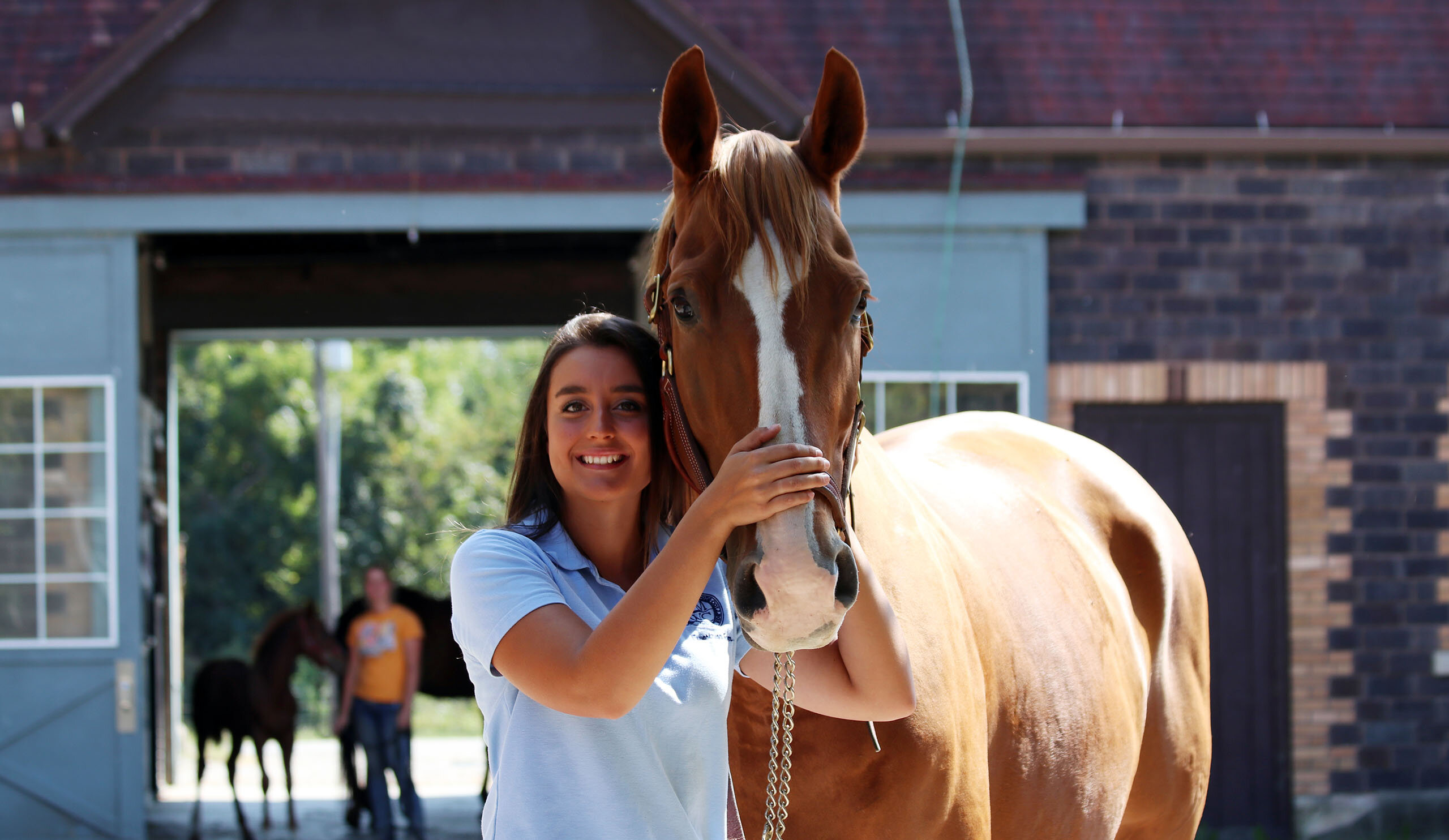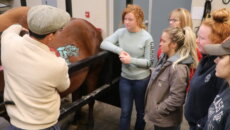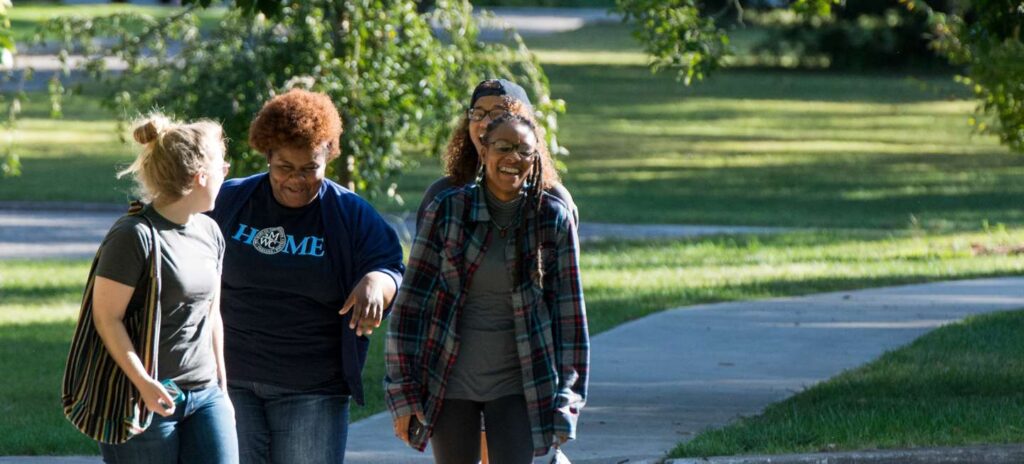
Equine Assisted Therapy Minor
Equine Assisted Therapy Overview
Combine your love of helping others with your love of horses through a minor in equine assisted therapy. Select an emphasis on education/special needs, organizational and leadership development or mental health. Students work directly with horses in the arena and outdoor environments.
FAQs
What is equine assisted therapy?
The relationship between people and horses is the basis for all equine-facilitated therapy. Participants engage in structured activities under the guidance of the therapist or leader. The unique interaction of the individual with the horse leads to increased confidence, self-esteem and understanding of themselves and others. Equine Assisted Therapy is the use of horses and other equines to promote growth, learning and psychological well-being for people. It is increasingly used to help people with a wide range of needs. Some of those who benefit from equine-facilitated therapies are:
- At-risk youth
- Children who are not achieving their academic potential
- Children with behavioral problems
- Children with special learning needs
- Children with autism
- Adults and children who have experienced family violence
- People in recovery from substance abuse or addiction
- People with depression, anxiety, or post-traumatic stress disorder
- Returning veterans
Equine-based learning activities are also widely used for organizational leadership training and teaching teamwork skills. Businesses, not-for-profit organizations and congregations seek equine-based services to help them become more productive.
Do I have to have experience riding horses?
Horse riding skills are not required for students in this minor. All activities with horses in this minor are on the ground (no riding or mounted activities).
Do I have to have previous experience working with or caring for horses?
While previous experience with horse training and care is helpful in your choice to study equine assisted therapy, you can begin with any knowledge about horses.
Why isn’t this minor in the Department of Equine Studies?
The equine assisted therapy minor is a part of the Department of Social and Behavioral Sciences. Courses are psychology-focused. While students in the equine assisted therapy minor do study equine behavior and animal-human interaction, they do not take any courses in the Department of Equine Studies.
What can you do with a minor in equine assisted therapy?
Equine-based approaches are emerging as valuable components of counseling, education, and leadership development programs. Your knowledge gained in equine assisted therapy will add a new dimension to your career, particularly if you plan to become a counselor, educator, or business leader. The minor will complement a major in:
- Equine studies
- Psychology
- Human services
- Education
- Business administration
- Human resource management
The study of equine assisted therapy will benefit students in any discipline. The skills learned in the program – for planning, guiding, and evaluating interventions – will enhance employment opportunities in any setting. (Where counseling or mental health services are given, a helping professional with a four-year degree can expect to work under the supervision of a more advanced helping professional.) You will develop:
- Leadership skills
- Problem-solving skills
- Perseverance
- Resourcefulness
- Verbal and non-verbal interpersonal communication skills
- Ways to motivate others
All of these qualities are highly valued by employers in any field. Students who master these skills will have an advantage in any job setting. They will be leaders who can bring about positive change.
What support and resources are provided at SMWC?
The Learning Resource Center (LRC) provides exceptional, personalized learning resource services to encourage student success. The LRC offers help with a range of academic support services, including a writing center, tutoring, college success courses and more.



